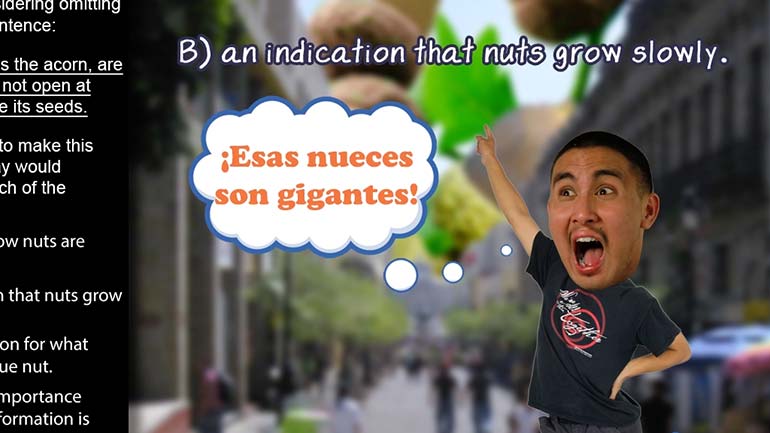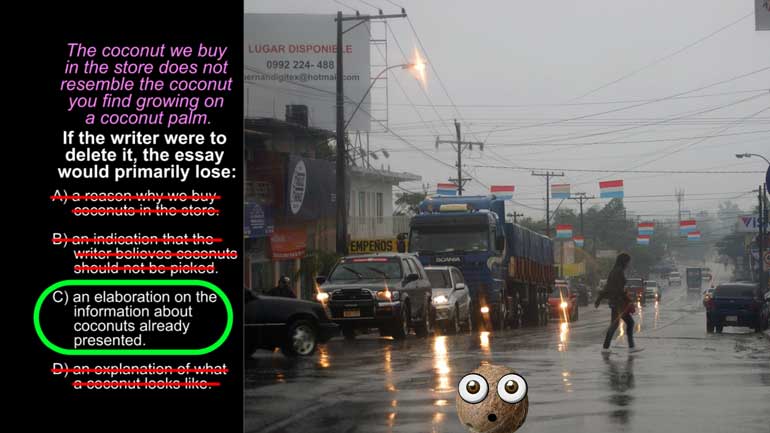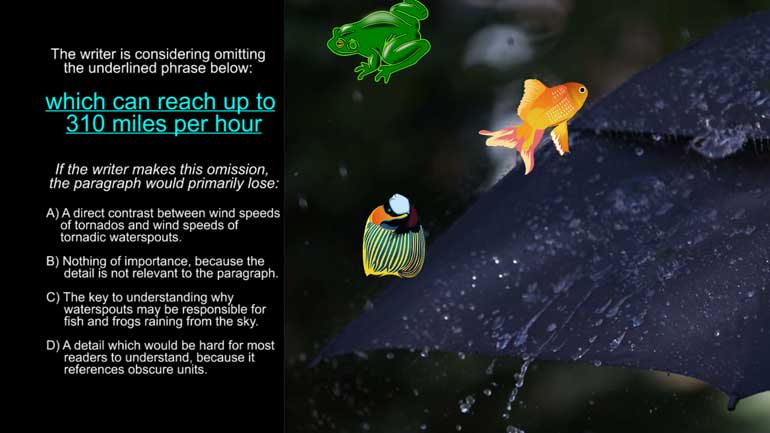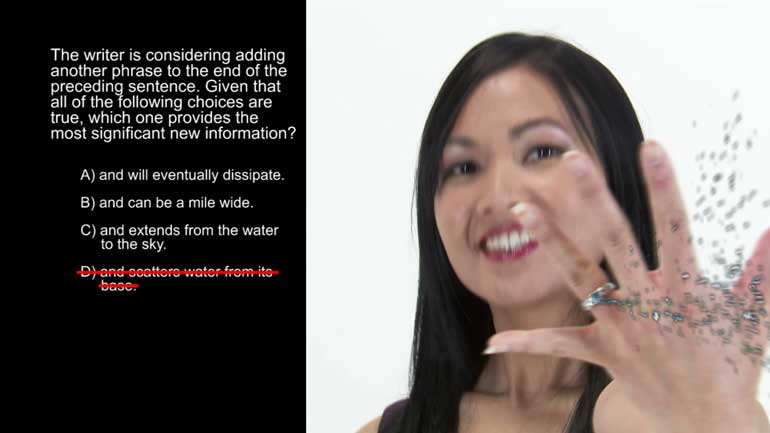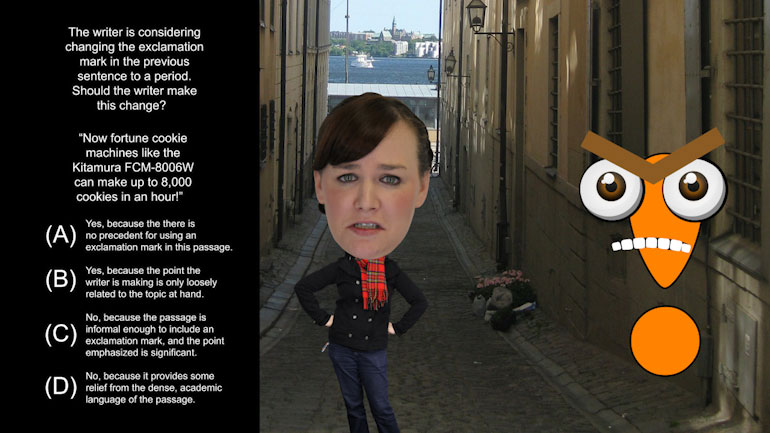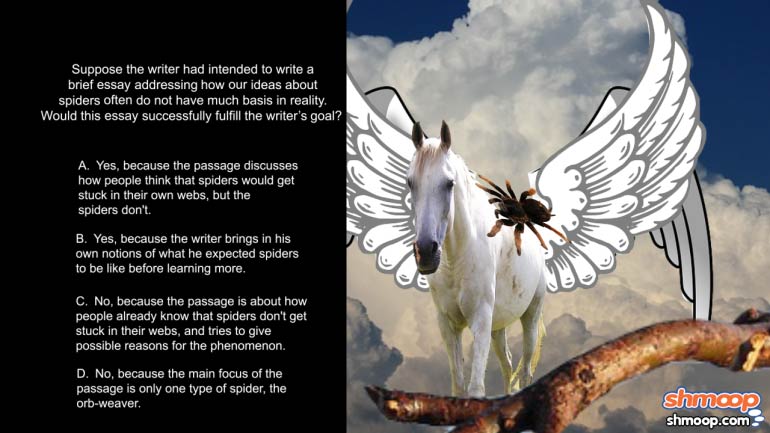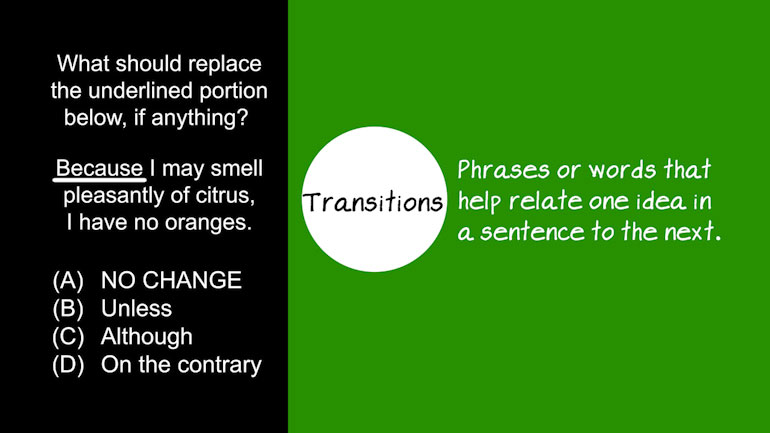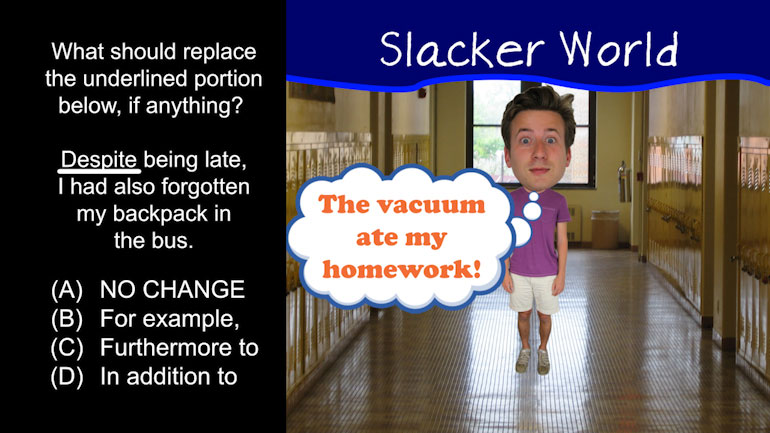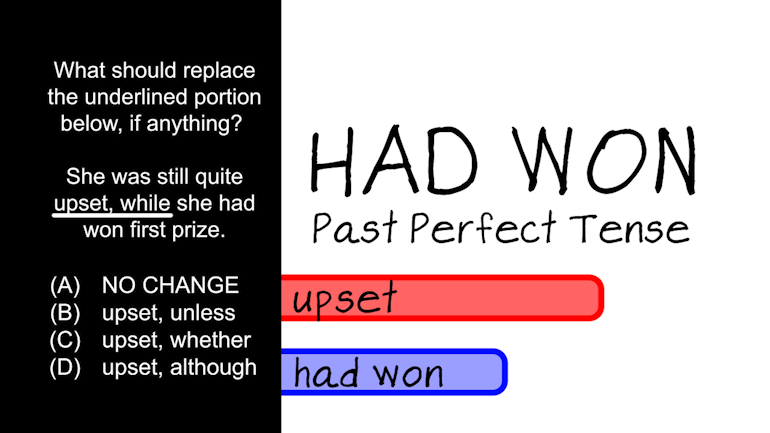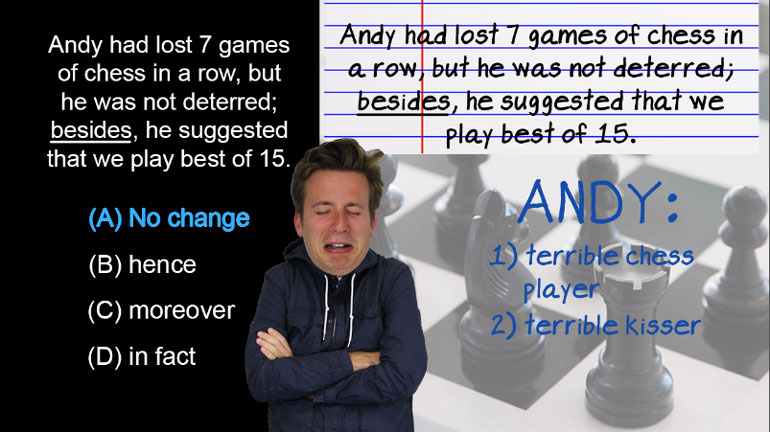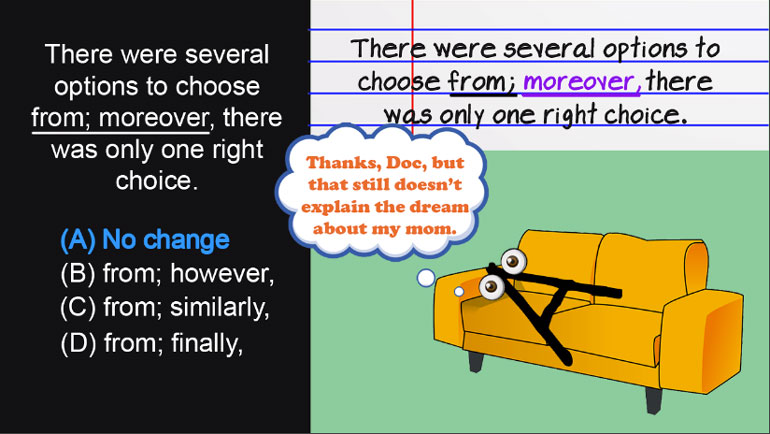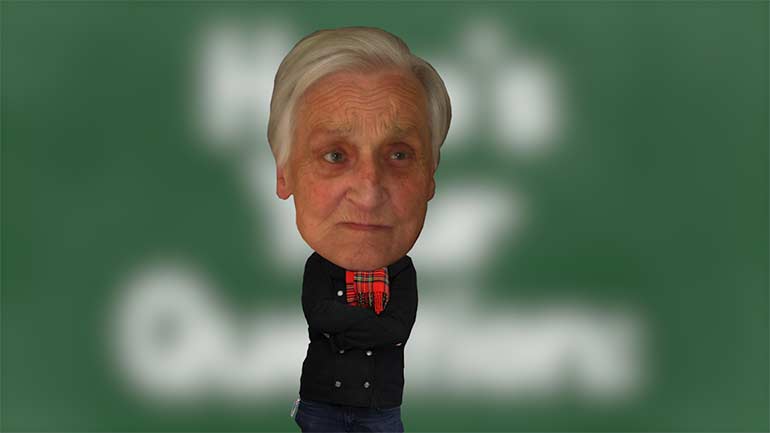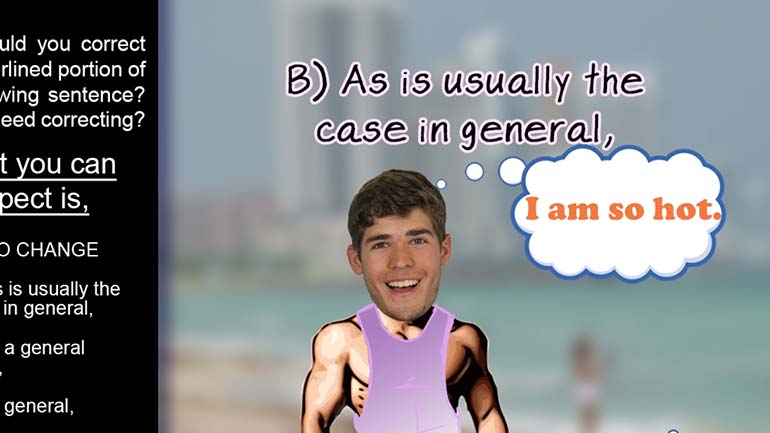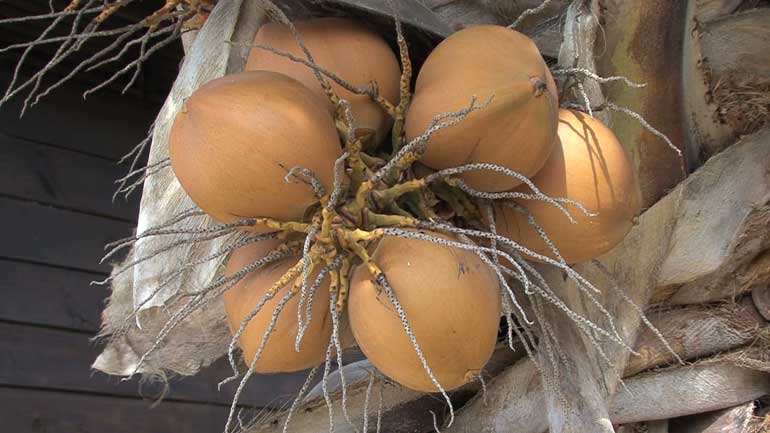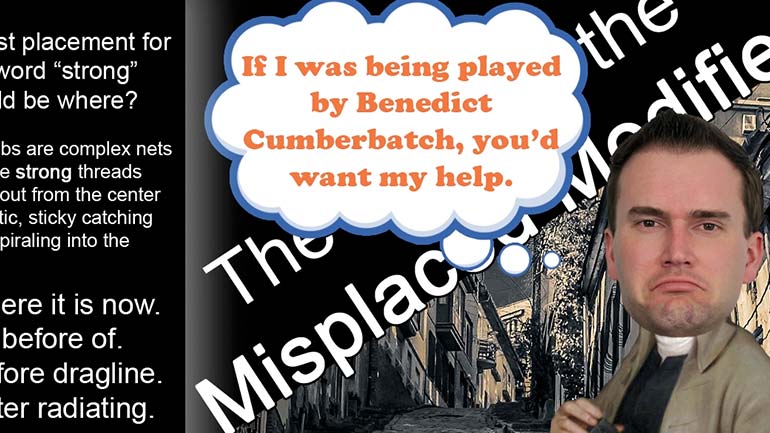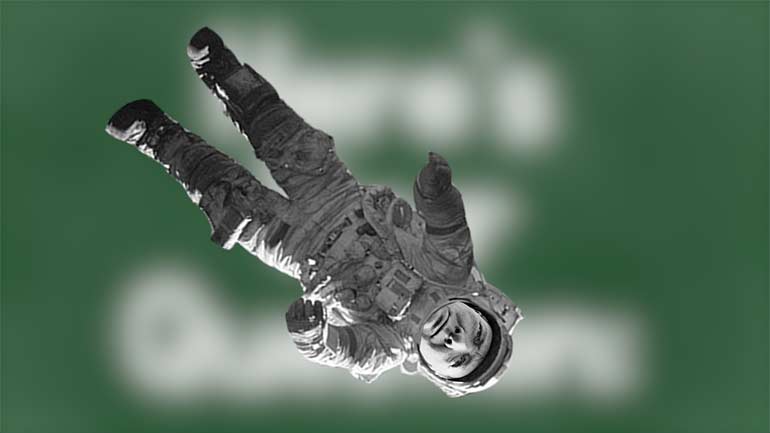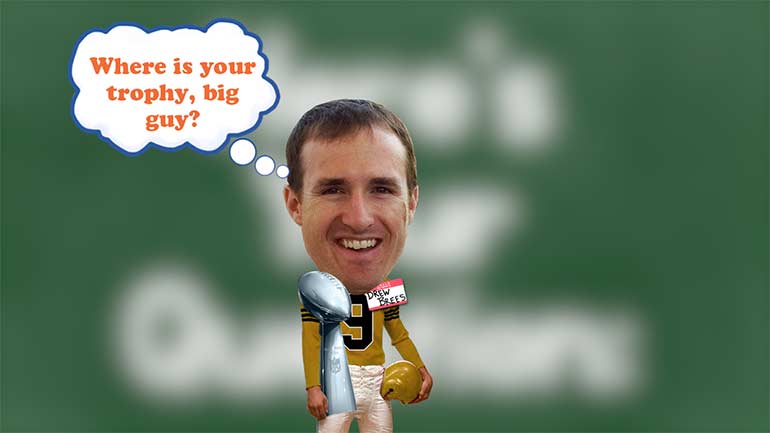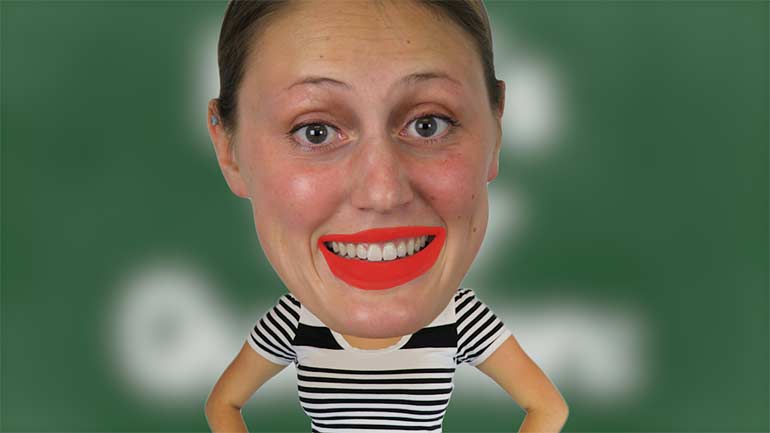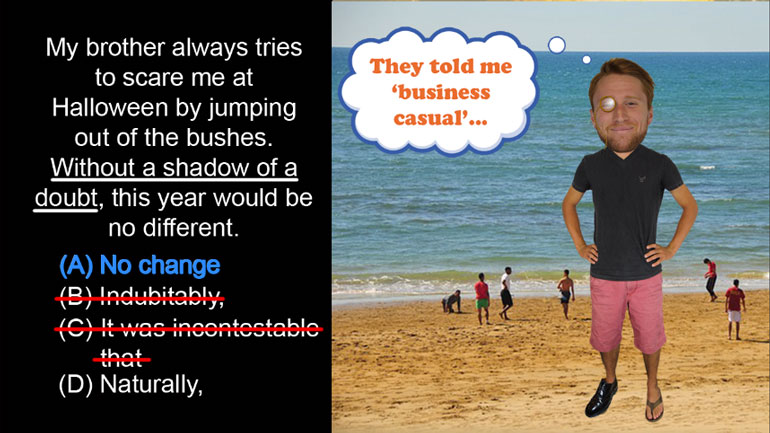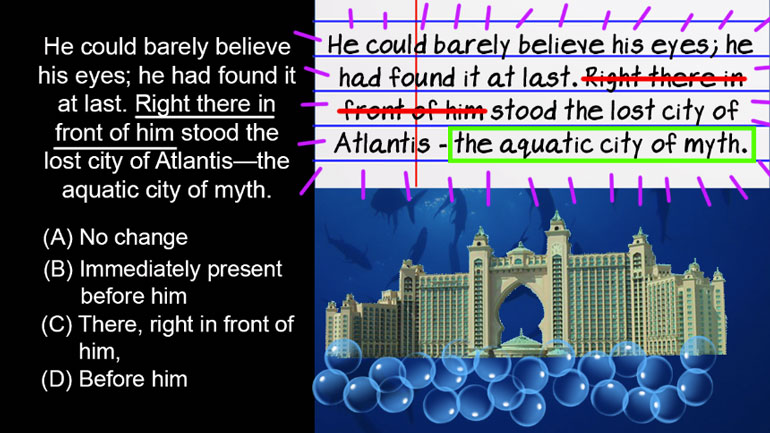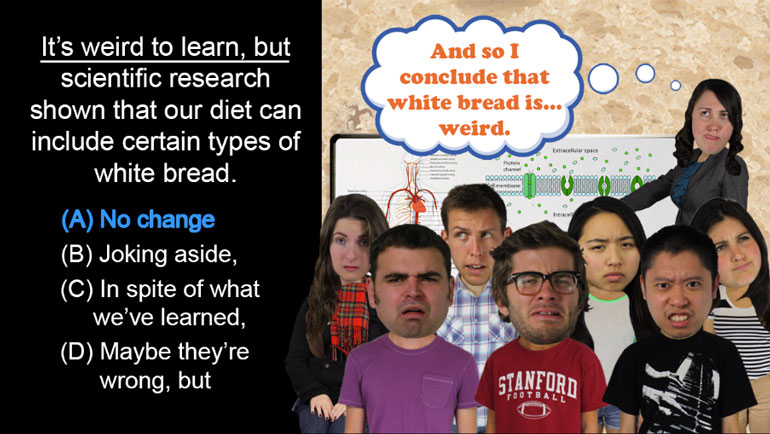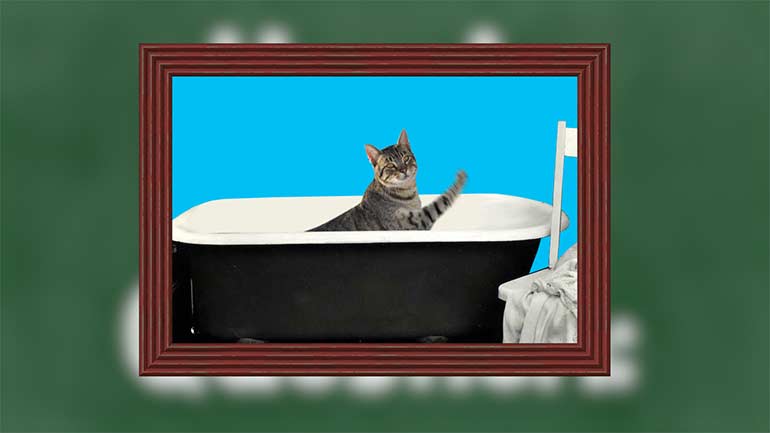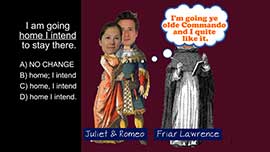ShmoopTube
Where Monty Python meets your 10th grade teacher.
Search Thousands of Shmoop Videos
Rhetorical Skills Videos 30 videos
ACT English: Passage Drill Drill 1, Problem 14. Checking for redundant or irrelevant information.
ACT English: Passage Drill 1, Problem 8. What would happen if we deleted the underlined sentence?
ACT English: Passage Drill Drill 3, Problem 2. What would the paragraph lose if the writer omits the underlined phrase?
ACT English 2.13 Passage Drill 183 Views
Share It!
Description:
ACT English: Passage Drill 2, Problem 13. How would you correct the underlined portion from the passage?
Transcript
- 00:03
Here's your Shmoop du jour, brought to you by
- 00:06
hydrophobia. A great excuse for skipping a bath.
- 00:14
Check out the following passage and answer the question below.
- 00:26
How would you correct the following underlined portion from the passage? Does it need correcting?
- 00:38
Here, we're looking for the word or phrase that helps the writer clearly describe the
Full Transcript
- 00:42
kind of water that most cats detest:
- 00:45
...the odious water of bathtubs.
- 00:48
Choice (B) suggests the phrase "in fact," but the phrase doesn't mesh with this sentence.
- 00:53
"In fact" is a transition, meaning that it's used to help the reader progress from one
- 00:58
idea to the next. This particular transition is often used when an author wants to refute
- 01:03
a previous idea. One might say something like, "Some people think cats love tub water; in
- 01:10
fact, cats loathe it with every ounce of their beings."
- 01:15
This isn't what the author is going for, though, so we'll eliminate choice (B).
- 01:19
Choice (C) is incorrect as well. The word "actually" often serves the same purpose as
- 01:23
"in fact" by helping an author contrast a previously stated idea. Someone might say,
- 01:29
"Eddy thinks I'm his friend; actually, I'm bent on his demise." But that person is probably
- 01:36
reading too much Edgar Allen Poe.
- 01:41
In any case, we're sure that (C) is wrong, and we can move on from here.
- 01:44
Choice (D) suggests the phrase "at most," which means "not more than." We might say,
- 01:49
"The miniature potbelly pig was at most 100 pounds."
- 01:52
Why might we say that? Whatever, we can say what we want.
- 01:56
This phrase does nothing to help the writer get his or her point across, so we'll nix
- 02:00
choice (D). The correct answer is (A). The phrase "at
- 02:03
least" can mean more exactly. Here, it helps the author specify that cats hate tub water,
- 02:09
not every drop of water in the world.
- 02:12
If cats hated all water, they'd be a pretty dehydrated species.
Related Videos
ACT English: Punctuation Drill 2, Problem 2. Where should the semi-colon be placed?
ACT English: Punctuation Drill 3, Problem 1. How should this sentence be changed so that it is grammatically correct?
ACT English: Punctuation Drill 3, Problem 2. How should we properly hyphenate the words in this sentence?
ACT English: Punctuation Drill 3, Problem 4. Which choice best formats this list of items?
ACT English: Punctuation Drill 2, Problem 1. Which choice of punctuation best completes the sentence?
